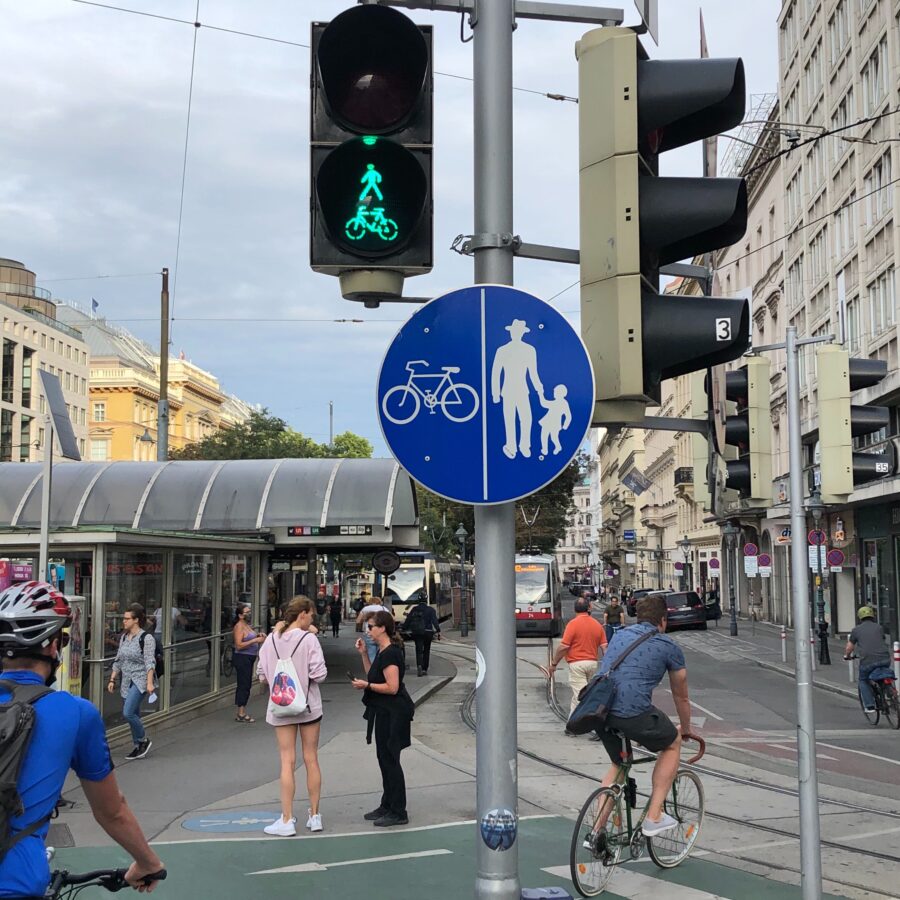3 min read.
Lucas Snaije is the Content & Communications Manager for BYCS and the editor of BYCS Perspectives.
Since its invention in the early 19th century, the bicycle has become a tool that is ubiquitous across geographies and societal contexts. No one truly knows how many bicycles are in use around the world, but some estimates go as high as 2 billion. Whether it is from the perspective of a street food vendor in Mexico City, a father in Amsterdam carrying his toddler to daycare, a young professional commuting in Bangalore, a schoolgirl in rural Zambia, or a protester in New York City – the bicycle provides reliable, human-powered, and resilient transportation, increasing access to opportunity and social empowerment.
Over the past 4 years, BYCS has worked to coordinate the “Bicycle Mayors and Leaders Network”, in an effort to highlight and support the role of civil society and enact community-driven change. Our connection to grassroots advocates in highly diverse urban contexts has cemented our belief that increased cycling will bring about vast benefits to people around the world. We have come to frame the bicycle beyond just a mode of transportation, but a powerful tool for social transformation.
Our exposure to differing strategies and cultural contexts has also made us internalise the need for a broader conversation to highlight diverse forms of knowledge, best practices and benefits to shape a global culture of active mobility. Three main reasons have prompted us to contribute to this broadening of the conversation:
- Firstly, the conversation around cycling best practices is predominantly centred around the usual suspects, such as Amsterdam, Copenhagen, Bogotá or more recently Paris. The ways in which these cities have adopted cycling policies certainly have a lot to teach others, however for these learnings to bear their fruits, they must be rooted in place. There exists no one-size-fits-all model of urbanism, which is why more success stories and examples from cycling progress in cities across the world should be highlighted.
- Secondly, the work of advocates and policymakers has historically focused on infrastructure. While this is a critical element to attain more bike-friendly cities, infrastructure does not benefit all citizens equally. We need to recognise that the landscape of bike advocacy strategies is highly diverse, and that many community-driven initiatives to promote bicycling beyond urban design at the local level play an important role, including soft factors that are key to craft a culture of the bicycle.
- Thirdly, the many social dimensions in which bicycles can help transform societies for the better deserve more attention. Mobility is inextricably linked to urban issues such as access to housing, access to public space or social and environmental justice. Such intersectionality should be reflected in mainstream bicycle discourse. Whether it is to attain gender-fair cities, nurture early childhood development, improve access to economic opportunity, revitalise neighbourhood economies, encourage more sustainable consumption habits, support social movements or ensure more resilient urban & rural communities, the bicycle can be leveraged for the betterment of all.
Each month, we will invite a group of bike advocates and urban practitioners to discuss an urban theme from a specific perspective that highlights cultural, geographic, socio-economic and political context yet reveals universal social benefits of more cycling friendly cities and communities. We hope you enjoy, and would love to hear from you on what topics we should tackle and who we should speak to in the future.


